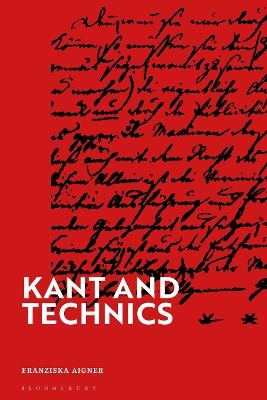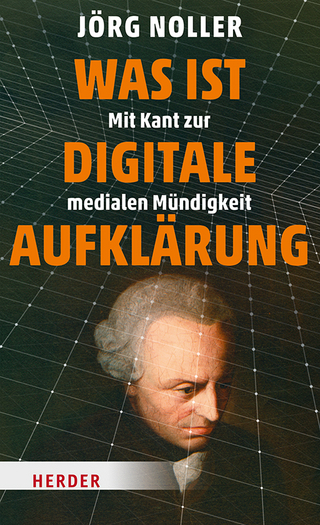
Kant and Technics
Bloomsbury Academic (Verlag)
978-1-350-29903-0 (ISBN)
The intention of this book is two-fold. On the one hand, it argues that, despite Heidegger, Simondon, and Stiegler’s inability of recognizing it, there is an explicit concept of technics at work in Kant’s philosophy. This technics is however not a technics that was overlooked by Heidegger, Simondon, and Stiegler. Instead, this book shows that, from the Critique of Pure Reason (1780) until the posthumously published Opus Postumum (1796-1803), transcendental philosophy is at once constituted against, while at the same time relying upon, and proceeding from technics. On the other hand, this book engages with the broader relation between philosophy and technics. If there is indeed such a thing as a Kantian thought on technics, then Kant can no longer be considered philosophy’s most prominent ‘techno-oblivious’ thinker. The question about the relation between Kant and technics is thus nothing less than a question about the relation between philosophy and technics as a whole.
Franziska Aigner is a Fellow at the New Center for Theory and Practice, USA, and an Associate Lecturer at the Institute for Applied Theatre Studies, Gießen University, Germany. She is also a performing and visual artist.
Foreword: Howard Caygill (Kingston University, UK)
1. Introduction
1.1 Heidegger, Simondon, and Stiegler on Philosophy’s Technical Aporia and Kant
1.2 Gerhard Lehmann and Wilfried Seibicke on technics in Kant
1.3 Introducing Technics from the Critique of Pure Reason until the Opus Postumum
2. Reason’s Instrumentality and the Need for a Discipline
2.1 Kant’s diagnosis of reason in the Critique of Pure Reason
2.2 Reason’s Instrumentality and the Canon/Organon Distinction
2.3 Method, the Technical Part of Logic
2.4 A Discipline for Reason
3. Kant’s Technical Objects
3.1 Mechanisms and Automatisms
3.2 Two Touchstones of Truth
3.3 Guiding Threads, ‘thirds’, Schemata
3.4 The Compass
4. Cosmo-technics in the Opus Postumum
4.1 Technical-practical Reason and the Technical Power of Judgment
4.2 Technical-practical Reason in the System of Transcendental Philosophy
4.3 On Positing
4.4 God, the World, and the Human
4.5 Technical-practical Reason and the World
4.6 Styx Interfusa Coërcet: The Transition
5. Conclusion
5.1 Kant and the History of Technical Thought
5.2 Kant and Heidegger, Simondon, and Stiegler
| Erscheinungsdatum | 29.10.2024 |
|---|---|
| Verlagsort | London |
| Sprache | englisch |
| Maße | 156 x 234 mm |
| Themenwelt | Geisteswissenschaften ► Philosophie |
| Naturwissenschaften | |
| ISBN-10 | 1-350-29903-0 / 1350299030 |
| ISBN-13 | 978-1-350-29903-0 / 9781350299030 |
| Zustand | Neuware |
| Informationen gemäß Produktsicherheitsverordnung (GPSR) | |
| Haben Sie eine Frage zum Produkt? |
aus dem Bereich


